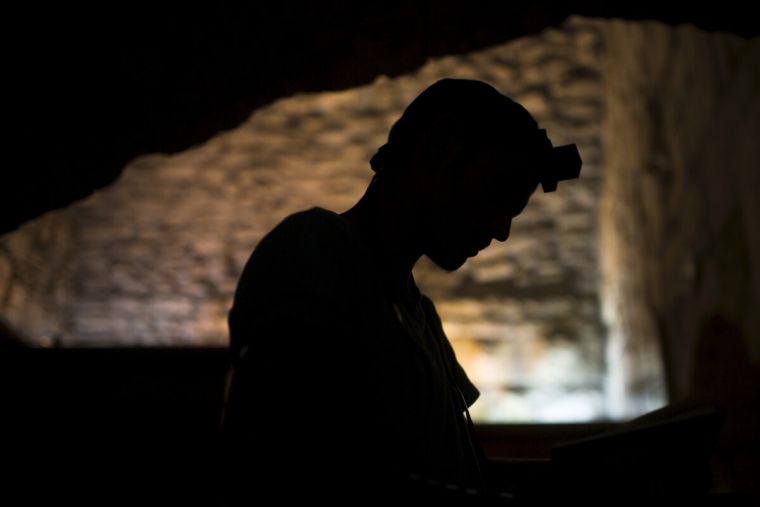Sabbath: Why keeping a day of rest is an act of revolution

Exodus 20:8-11 contain some of the most revolutionary words in the Old Testament.
The chapter contains the Ten Commandments and verse 8 is the fourth: "Remember the Sabbath day by keeping it holy."
The passage continues: "Six days you shall labour and do all your work, but the seventh day is a sabbath to the Lord your God. On it you shall not do any work, neither you, nor your son or daughter, nor your male or female servant, nor your animals, nor any foreigner residing in your towns."
Along with circumcision, Sabbath-keeping was a mark of Judaism from its earliest times. Jews did not work on the Sabbath, and in Mosaic times the penalty for doing so was death (Numbers 15:32-36).
So fervently did Jews believe in the Sabbath that they were prepared to die for it. During the Jewish rising under Judas Maccabaeus (167-160 BC), a thousand Jews took refuge from the Seleucid forces in a cave. They died without resistance when they were attacked on the Sabbath because to fight would have been to break it. "Let us all die in our innocence," they said; "heaven and earth testify for us that you are attacking us unjustly."
It was because of the Jews' insistence on keeping the Sabbath that Jerusalem fell in AD 70; the Roman general Pompey built a huge mound to overlook their defences, working on the Sabbath when the Jews refused to do anything to stop him.
Stories like these show how much the Sabbath meant – and means – to Jews. But Christians tend to "read" Judaism through New Testament eyes, and in the New Testament the Sabbath gets a bad press. The influential Pharisees – the rigorously observant party – had turned it into a burden instead of a joy. They held that healing on the Sabbath, except when life was in danger, was forbidden; so you could stop an injury or a condition getting worse, but you couldn't do anything to make it better. It's this interpretation that led Jesus to say: "The Sabbath was made for man, not man for the Sabbath" (Mark 2:27).
Most Christians have used Sundays for worship and rest, taking the Jewish Sabbath as a model. At times this has led them to be quite as Pharisaical as the Pharisees, presuming to prescribe what Jesus meant when he said that "the Sabbath was made for man".
But properly understood, Sabbath is revolutionary. It says we are not just economic units.
The Sabbath was instituted at a time when life was hard and precarious. For many people it was a daily battle for survival. But even so, at the heart of the identity of God's people is the assertion that the purpose of life is not just to survive. They are not only to be concerned with putting bread on the table; life is more than that.
We sometimes think that the Sabbath is fundamentally about worship. That isn't really true. It may be the day on which worship is most convenient, but it is fundamentally about rest. This means doing something for which we aren't paid, but which we enjoy – and, vitally, which we can choose.
In our own times, this is a vitally important message. Our society is increasingly geared towards production and consumption. Rising rents and house prices mean that for many families, having both parents at work is now the norm. Increased Sunday working – which Christians should always protest and resist – has meant that fewer families are able to spend a whole day together free of other responsibilities. And we are bombarded with advertisements encouraging us to buy more stuff that we don't need and can't use, requiring us to work harder to earn the money to spend on them.
This drive to produce can become ingrained in us. Many of us need to be freed from the need to achieve and to perform. We feel we're not really living unless we're doing something useful. The Sabbath is not just a day on which rest is permitted; it's a day on which rest is commanded. A spiritually healthy lifestyle involves a rhythm, a balance of work and leisure – and Sabbath helps make that happen.
Sabbath is a spiritual discipline that frees us from slavery to things. It opens a space in our lives for what's more important.
This might be time with family or friends. It might be time alone, doing something we love.
It might be worship, in God's house with God's people.
And if it is worship, we need to be doubly careful not to let that become a new tyranny, which forces us into the sort of conformity which Jesus resisted. There are Pharisees in churches as well as in synagogues.
In his commentary on Jesus' words in Mark 2, the great Puritan scholar Matthew Henry writes: "The Sabbath is a sacred and Divine institution; a privilege and benefit, not a task and drudgery. God never designed it to be a burden to us, therefore we must not make it so to ourselves."s
Sabbath is a gift. Sabbath is revolutionary.
Follow RevMarkWoods on Twitter.











